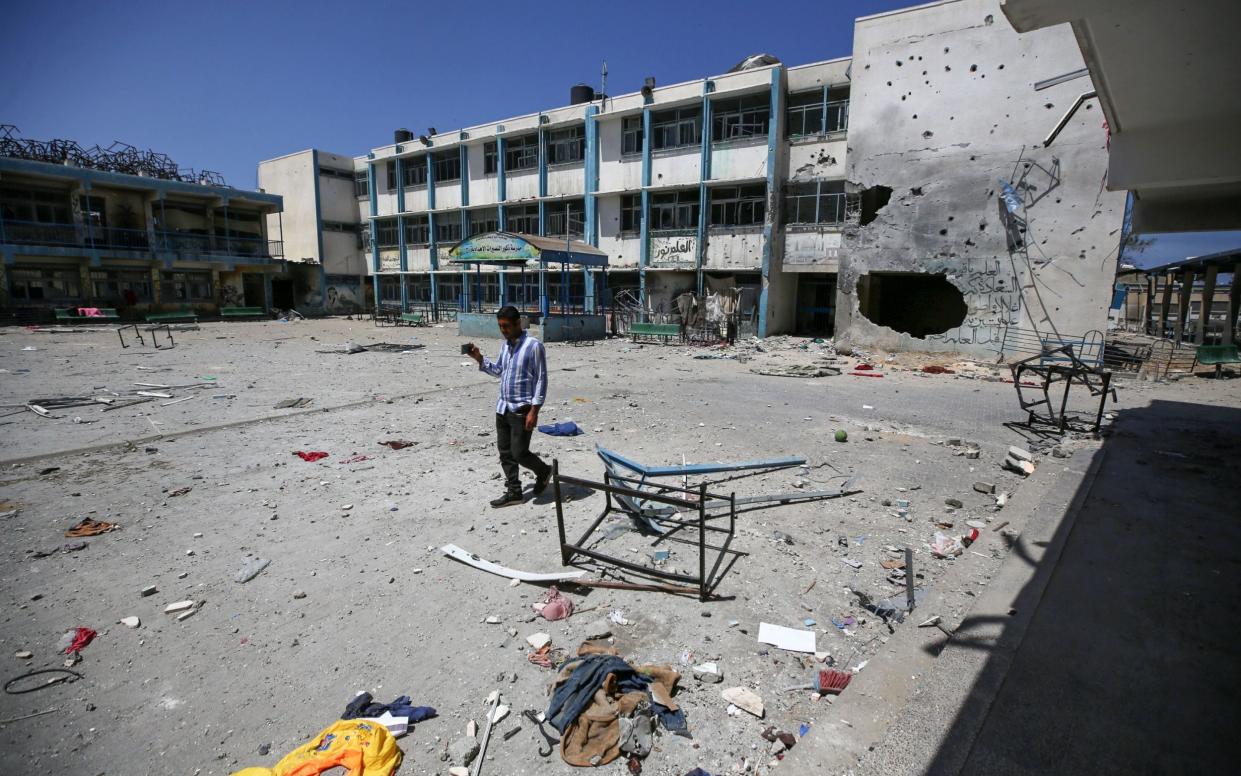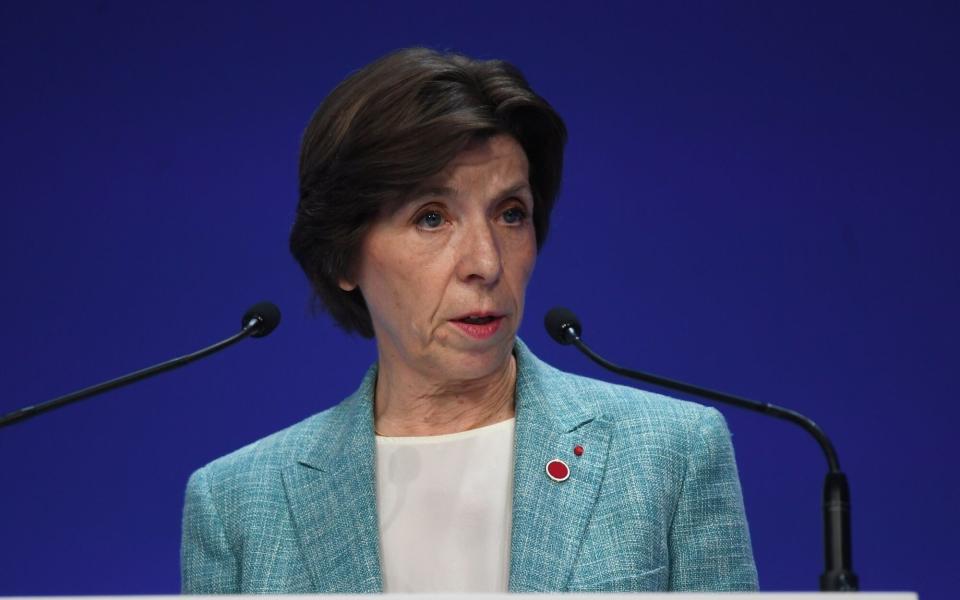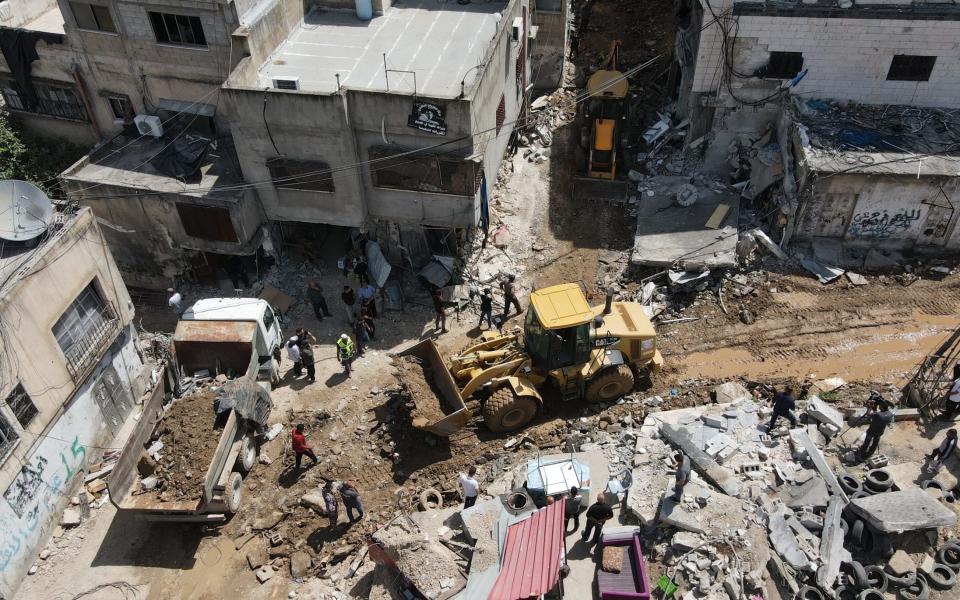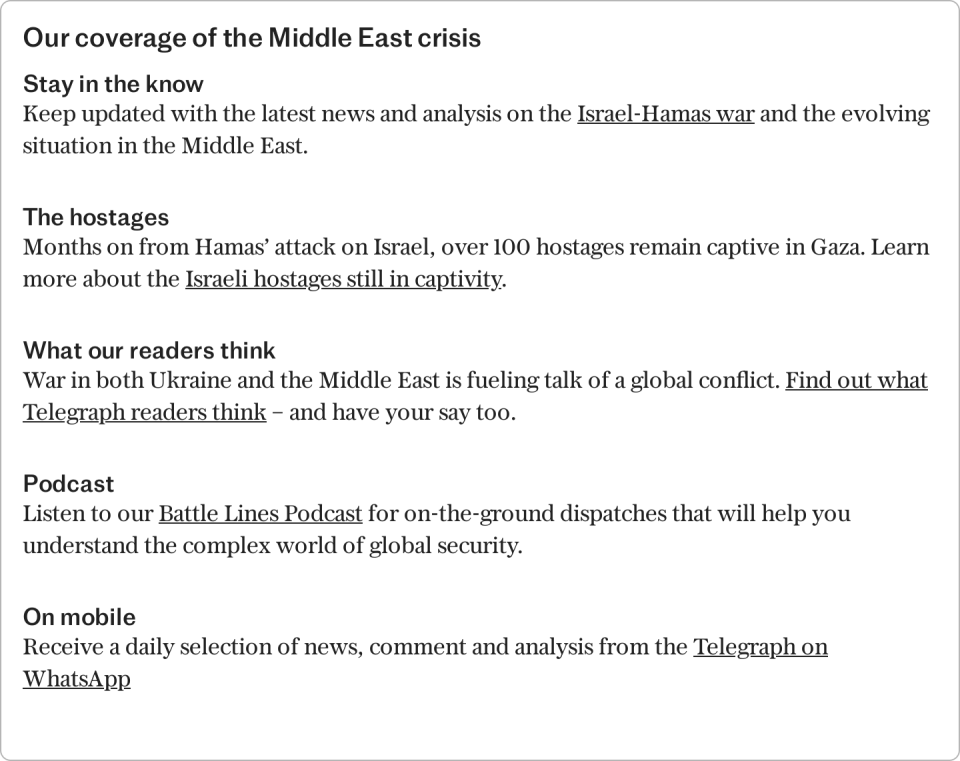Vetting of UN agency staff for pro-Hamas bias needs improving, report finds

The UN’s Palestinian refugee committee must improve its screening of staff for pro-Hamas sentiments, an independent review into the agency has said.
The review, led by Catherine Colonna, a former French foreign minister, said that Israel has yet to provide any evidence that employees of the United Nations Relief and Works Agency for Palestine Refugees (UNRWA) are members of Hamas and other terrorist organisations.
However, it added, the agency continues to face persistent “neutrality-related issues” despite having in place a “robust framework” for vetting staff. These include staff “publicly expressing political views” and UNRWA school textbooks featuring “problematic content”.
The report was commissioned by the UN in the wake of Israeli allegations that 12 UNRWA members of staff were involved in the Oct 7 attacks – a claim that prompted more than a dozen donors, including Britain, to suspend their funding to the agency in late January.
Some $450 million worth of funding was suspended, though several donors, including Canada, France and Germany, have since restored payments.
Ms Colonna, alongside three Scandinavian institutes, was charged with reviewing UNRWA’s methods for enforcing neutrality and its handling of serious breaches.

A separate inquiry, led by the UN’s Office of Internal Oversight Service in New York, is being carried out into the Oct 7 attacks and the alleged involvement of UNRWA staff.
Ms Colonna’s report concluded that the agency, which operates in Gaza, the West Bank, Jordan and Syria, was “irreplaceable and indispensable” to Palestinians in the Middle East.
“UNRWA remains pivotal in providing life-saving humanitarian aid and essential social services, particularly in health and education,” reads the report, which was shared with The Telegraph prior to its public release.
It acknowledged that the agency’s neutrality challenges differ from those of other UN international organisations due to the magnitude of its operations, with more than 99 per cent of its 32,000 staff being recruited from local populations.
As a result, UNRWA has established a “significant number of mechanisms and procedures” for screening and vetting staff for Hamas sympathies, the report said.
Prior to employment, staff are screened for criminal records while their names are run through Clear-Check, a UN database that holds details on people sanctioned against working for the organisation.
Once employed, staff undertake mandatory neutrality training programmes and social media specific courses. The agency has also developed a neutrality framework and code of ethics which are included in staff contracts.
UNRWA’s staff lists are also shared with host countries, including Israel, for review.
However, the Colonna report said: “Despite a comprehensive set of measures to screen and vet staff… these measures do not allow sufficient verifications.”
It said most alleged neutrality breaches relate to social media posts.

As of April 2024, 50 neutrality cases are being investigated. Between 2017 and 2022, the agency handled an average of 21 alleged breaches per year.
But resources to investigate such cases are “scarce”, the review said, highlighting how extra funding would help “strengthen investigative capacity” within the agency.
The Colonna review also called for a review of all textbooks used in UNRWA’s schools, citing a report from 2023 that found 3.85 per cent “contain issues of concern to UN values, guidance, or UN positions on the conflict”.
“Even if marginal, these issues constitute a grave violation of neutrality,” the review said. “Among the various issues, recurrent ones were the use of historical maps in a non-historical context, e.g. without labelling Israel; naming Jerusalem as the capital of Palestine.”
Other recommendations issued by Ms Colonna included updating the agency’s neutrality framework, “especially to address the challenges posed by social media and new technologies”; identify and implement additional ways to screen staff at an early stage of recruitment; and establish a continuous vetting process.
The report also suggested using international staff to investigate “neutrality breaches” by local hires.
Chris Gunness, a former UNRWA spokesman, welcomed the Colonna report, saying it confirms the “indispensable role” of the agency as a “lifeline”.
Its findings, he added, “offer no reasons why British funding for the agency’s life-saving work should not be resumed immediately”.


